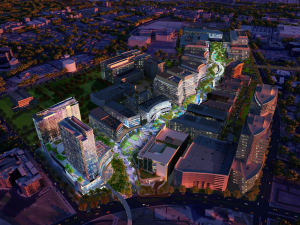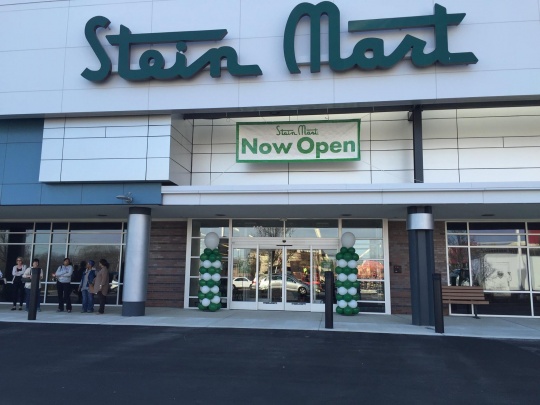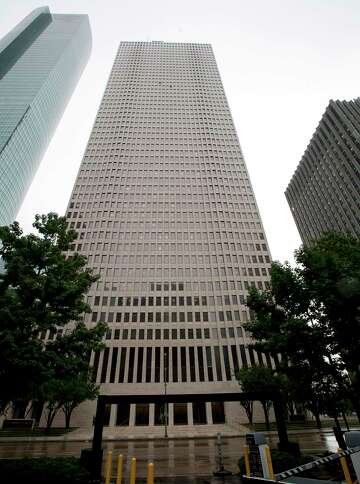Houston, the thriving economic powerhouse of Texas, is renowned for its robust industrial sector. This strategically located city offers exceptional opportunities for businesses in search of industrial space. If you're on the lookout for Houston industrial space for lease, you've come to the right place.
Worst Vacancy Since The ’80s
Despite leading the nation in the percentage of workers back at their desks by one oft-cited metric, Houston’s office market remained sluggish in the third quarter as an abundance of new product, limited demand and the impact of the resurgent delta variant of the coronavirus combined for a disappointing result in the quarter that was supposed to be the turning point for the better.
Madison Marquette’s latest report highlights several signs of life for the sector, including slowing occupancy losses and increased tour activity suggesting some pent-up demand. But in the main, it paints the picture of continued struggle, including the seventh straight quarter of negative absorption and the highest vacancy rate since the 1980s.
Another 606K SF of office space became vacant in Q3 for a year-to-date total of 2.1M SF. With new product coming online, the vacancy rate has surged 170 basis points to 23.7% for the first nine months of 2021. According to the report, developers have delivered 653K SF of new product so far this year with an additional 2.3M SF on the way by year’s end.
“As a result, direct vacancy levels are expected to climb even higher through the end of the year,” the report said.
The report noted there are “increased signs of stabilization as we move into 2022,” but those signs aren’t making much of a dent so far. Leasing volume totaled 2.4M SF in Q3, but it still lags pre-pandemic averages from 2017-2019 by 45.8%. Tour activity is up, the report said, “but has yet to translate to notable deal volume.” And though sublease availability declined for the first time since the onset of the pandemic — down 468K SF to 7.6M SF overall — the report points out that might not be a trend given employers continue to reassess and downsize office footprints.
“The full impact of hybrid and remote work strategies have not yet been felt but many occupiers are currently exploring ways to optimize their office footprint and seeking more flexible lease terms and obligations,” the report noted.
The report comes as Houston jumped 8.2% in Kastle’s latest Back To Work Barometer to lead the nation’s metros in terms of workers back at job sites. As of late September, the keycard security company said 48.7% of Houstonians were occupying physical offices. Yet office brokers and experts at a September Bisnow event said that after ramping up during the spring and early summer months, leasing activity slowed with the approach of fall and rising cases of the delta variant, reflecting a reluctance for decision-makers to pull the trigger.
Madison Marquette said Class-A properties are bouncing back more quickly, with 550K SF in occupancy losses so far this year versus a whopping 2.6M SF in 2020.
“However, Class-B properties continue to face challenges with 1.5M SF of occupancy losses YTD as recent business contractions and a flight to quality trend continues to impact the sector,” it said.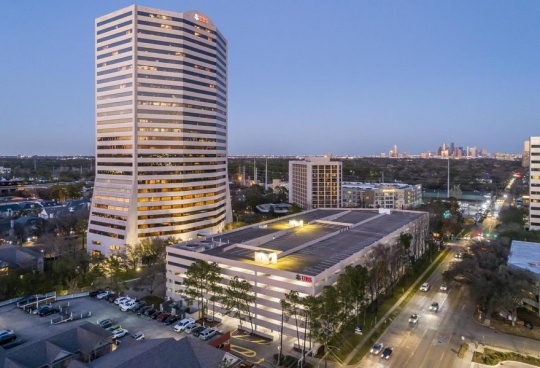
Houston Texas Medical Center has begun construction on the $1.8+ billion first phase of the 37-acre megaproject known as TMC3.
Houston’s place in the U.S. and the world as a major life science cluster takes a big step forward as Texas Medical Center begins construction of the $1.8 billion first phase of a 37-acre, 6 million-square-foot life science campus known as TMC3.
Dubbed the world’s largest life science campus, the TMC3 master plan was designed by Boston-based Elkus Manfredi Architects, a key player in shaping several of the leading life sciences clusters in Massachusetts.
The TMC3 project expands on the more than 60 institutions and 100,000-plus employees already located at Texas Medical Center, the largest medical center in the world. William McKeon, TMC president & CEO, said in a prepared statement TMC3 extends the medical center’s collaboration to Fortune 100 life sciences companies and entrepreneurial ventures.
Phase One is backed by $1.8 billion in financing from leading life science investment and property development teams. It includes two buildings totaling 950,000 square feet—a 700,000-square-foot research facility and a 250,000-square-foot collaborative building developed by Beacon Capital Partners and their strategic partner Braidwell, a life science-focused investment firm.
The initial phase will also feature a hotel with more than 500 keys and 65,000 square feet of conference space; a 350-unit residential tower; more than 2,000 parking spaces and 18.7 acres of public space. Helix Gardens, part of the landscape design by Mikyoung Kim, will feature a chain of five public parks and a central garden for outdoor receptions, concerts, graduations and other large-scale events.
A promising future
Alex Karnal, co-founder & chief investment officer at Braidwell, said in a prepared statement TMC3 will be a model of how to empower an ecosystem of expertise at tremendous scale. In addition to its partnership with Beacon, Braidwell is expected to bring its expertise in making multi-stage life science investments to fuel growth of companies that will be operating on the TMC3 campus.
Noting it’s an unprecedented time for life sciences and innovation in the U.S., Steve Purpura, president of life science at Beacon Capital Partners, said in prepared remarks Houston has all the factors required for explosive growth in the life sciences space. He also credited TMC with seeding innovation, building relationships with the world’s largest life sciences companies and creating the infrastructure needed for long-term success.
TMC3 is expected to generate about $5.4 billion in economic growth for the state each year, including the creation of more than 23,000 new permanent jobs and about 19,000 construction jobs.
Other TMC3 campus collaborators include Majestic Realty, Transwestern Development, The University of Texas MD Anderson Cancer Center, Texas A&M University Health Science Center and University of Texas Health Science Center at Houston.
Boca Raton, Florida-based CP Group has acquired Five Post Oak Park in the Galleria/Uptown submarket in Houston.
Christie Moffat at Bisnow.com says:
The Class-A, 567K SF, 28-story office tower was built in 1982 and is located within the 43-acre Post Oak Park business park. The acquisition was completed as a joint venture, with funds managed by Miami-based Rialto Capital Management.
CP Group said in a press release that it intends to modernize the building’s lobby, which will include the addition of a new coffee shop and restaurant space. There are also plans for developing an outdoor patio connecting to adjacent green space.
Five Post Oak Park is CP Group’s first property in the Houston market since 2014, when it sold off Lakes on Post Oak, a three-building office development in the Galleria/Uptown submarket.
Houston’s office market is one of the most challenged in the country, with a vacancy rate of about 23%, according to the latest Q2 2021 office market report from Colliers International. The energy downturn in 2020, coupled with the coronavirus pandemic, has sent the city’s total vacancy rate to new highs.
CP Group Senior Vice President Brett Reese told Bisnow that the weakness of Houston’s office market is precisely why the firm decided to invest in the property.
“We’re buying a quality asset in a quality location with an abundance of amenities, and we believe there is a dislocation in the capital markets,” Reese said. “Many buyers are not currently pursuing deals in Houston, which is creating what we feel are great opportunities.”
Reese said that CP Group believes that the Galleria/Uptown submarket is the most desirable submarket in Houston, as it falls within the top 20 business districts by office square footage.
Transwestern Executive Vice President David Baker is leading Five Post Oak Park’s office leasing team. The property is just over 50% leased.
Contact Christie Moffat at christie.moffat@bisnow.com
 LinkedIn Corp. has just purchased the site of its global Sunnyvale headquarters campus for $323 million, a sign of its willingness to maintain a long-term presence in its home city. Seen here is the interior of one of two buildings that make up its global headquarters.
LinkedIn Corp. has just purchased the site of its global Sunnyvale headquarters campus for $323 million, a sign of its willingness to maintain a long-term presence in its home city. Seen here is the interior of one of two buildings that make up its global headquarters.
By Matthew Niksa – Commercial real estate reporter, Silicon Valley Business Journal
Jul 2, 2021
LinkedIn Corp. has just purchased the site of its global Sunnyvale headquarters — which the company was previously renting — for $323 million, a sign of its willingness to maintain a long-term presence in its home city.
In a deal that closed Thursday, the professional networking service purchased a two-building campus at 950, 1000 and 1020 W. Maude Ave. from an affiliate of Deutsche Bank, according to Santa Clara County property records. The campus contains 287,644 square feet of office and research-and-development space, according to data from commercial real estate analytics firm Reonomy, meaning LinkedIn spent about $1,122 a square foot to acquire the property.
Here is a list of the big ones for 2020:
Gov. Abbott creates strike force, eases medical restrictions and more in the plan to slowly reopen Texas
Texas Gov. Greg Abbott issued a series of executive orders Friday, April 17, with several directives meant to gradually reopen the state.
First, the governor is establishing a strike force that includes medical experts, business leaders, educators, and political leaders. This team will work together to find safe and effective ways to slowly re-introduce Texans to their usual way of life.
He said key members of the strike force include Rep. Dennis Bonnen, Attorney Gen. Ken Paxton, Lt. Gov. Dan Patrick and attorney Glenn Hegar.
The force will also have advisers from the business community such as jeweler Kendra Scott, Gallery Furniture owner Jim “Mattress Mack” McIngvale, and restaurateur and Houston Rockets owner Tilman Fertitta.
The strike force is broken into four core groups: economic revitalization, health care, and fiscal accountability and federal liaison.
One of the biggest announcements regarded school districts and universities, which are closed for the rest of the school year.
On April 27, Abbott said he will announce additional guidelines for the reopening of Texas.
Texas allowing nonessential retailers to do ‘to-go’ services
As part of his plan to reopen Texas, Gov. Greg Abbott will loosen restrictions on non-essential retailers and service next week.
Beginning April 24, businesses that are not essential but can be provided their product or services through pickup, delivery by mail or direct delivery to the customer’s home will be allowed.
This directive allowing to-go retail services is one of three executive orders Abbott announced Friday, April 17.
In the meantime, dining in at restaurants, food courts and bars remain closed. The same applies to gyms, massage establishments, tattoo and piercing studios, beauty salons.
Gov. Abbott loosens restrictions on some surgeries and other medical procedures
Gov. Greg Abbott Friday unveiled his plan to gradually reopen Texas, and it includes loosening some restrictions on surgeries.
Under the governor’s executive order in March, only surgeries and procedures that were “medically necessary to diagnose or correct a serious medical condition or to preserve the life of a patient” were allowed.
Other surgeries and medical procedures were canceled so Texas hospitals could make room for COVID-19 patients and focus resources on them.
Under the new executive order, there will be some exceptions beginning April 22.
The Coronavirus Recession has made it impossible for many businesses to pay their rent. Real estate professionals need to practice some common sense to avoid triggering a collapse that hurts us all.
The real estate industry is built on credit, and when cash doesn’t flow from tenants to building owners to banks, loans are not repaid to the companies that service those mortgages.
CORONAVIRUS UPDATES: Stay informed with accurate reporting you can trust
Mortgage servicers are not the end of the line, though, because they have packaged those loans into bonds and sold them to investors, many of whom have taken loans using the bonds as collateral. If too many small businesses fail to pay their rent, it can trigger much bigger problems.
The threat is real. The U.S. economy will likely contract 7.8 percent in 2020 due to what Deutsche Bank calls the largest decline in consumer and business spending since the Great Depression. Most commercial tenants are service businesses that rely on consumer spending.
“Volatile financial markets and the growing uncertainty of future tenant cash flows have slowed (commercial real estate) activity. Hotels and retail space appear to be most affected,” industry analysts at Wells Fargo wrote in an investor’s note. “Social distancing and the preponderance of stay-at-home orders has severely cut into consumer spending.”
The Great Recession of 2008 started this way in the residential mortgage market. A high rate of residential defaults crushed the mortgage bond market. When a mortgage servicer fails to pay investors, they drag down the value of the servicer’s stock and all mortgage-based bonds.
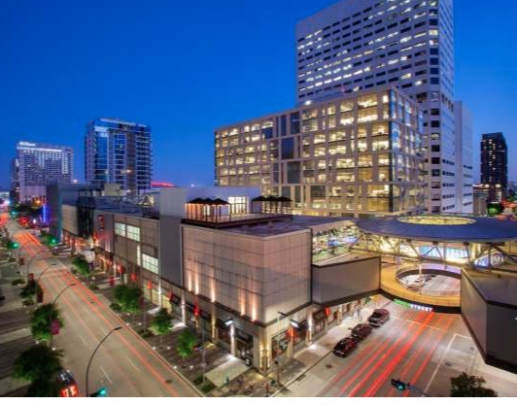
TOMLINSON’S TAKE: Slide in oil prices could signal permanent change to the energy industry
Value destruction in the $16 trillion commercial real estate debt market could drag down all financial markets. The industry hopes the Federal Reserve will step and buy bonds soon, but billionaire investor Carl Icahn told CNBC television last month he’s betting on a collapse.
“The banks went out and loaned money against a lot of shopping malls, office buildings, hotels, and retail,” Icahn said. “A lot of these bonds now are in grave danger.”
If business people all along the credit chain practice some common sense and innovation, though, they can avert a crisis.
“If you have an overreaction, we’re going to have bigger and deeper problems,” Brad Freels, chairman of Midway, a Houston developer of more than 46 million square feet of commercial and residential properties. “If everybody just sits still and doesn’t panic, we can get through this.”
No one has seen a recession quite likes this one, but with almost 40 years in the business, Freels has seen quite a few others. As a property owner with office, retail, multifamily, hotel, and restaurant tenants, and a developer with mortgages to pay, he is in the eye of the commercial real estate storm.
Companies leasing property need to pay what they can be based on their income and not try to game the system, Freels said. They need to take advantage of every available government program to help them pay the rent and keep employees on the payroll.
Before asking for relief, the business owner should run the numbers and explain what kind of break they need and for how long, understanding that they need to pay as much as they can to keep the credit system on life support.
Property managers need to get creative, Freels added. Landlords need to manage up as much they manage down and know their numbers. Thanks to banking reforms, landlords have more equity in their property than in 2008, which means the mortgage company or bank knows their collateral is good, or at least it was going into the crisis.
Mortgage servicers need to understand that forbearance is better than a foreclosure. Allowing property owners to pay only the interest on their mortgages for a few months and extending the life of the loan is preferable to declaring a default and taking possession of a property no one wants.
Lastly, investors have little choice but to accept lower dividends and share prices. The defining characteristic of the Coronavirus Recession is its universality. No geographic area, industry, or nation is immune from it, so real estate investors have few other places to put their money.
No one is going to make as much money as they were expecting, and many will lose money as restaurants, retailers and other businesses never come back. Now is not the time to get aggressive, only cooperation will cushion the blow for the economy as a whole.
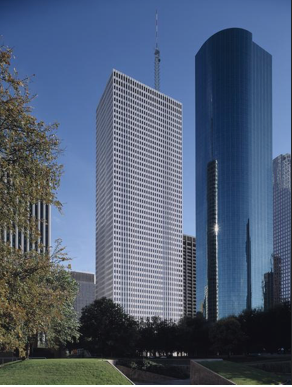
As Texans adjust to life under orders to stay at home during the new coronavirus pandemic — and scramble to cover expenses with incomes that were drastically cut or abruptly shut off — housing and real estate experts say it’s hard to predict what the parallel public health and economic crises will do to home values and sales.
A lot depends on how long the twin troubles last.
“We definitely will have a slowdown, but the question is how much and how long,” said Scott Norman, executive director of the Texas Association of Builders.
That’s a sudden about-face for what had been, until now, one of the most dynamic real estate markets in the country. The state has had five consecutive years breaking records in terms of numbers of houses sold and median prices, according to Texas Realtors. And Texas’ homebuilding industry has been solid, too; no other state had more building permits in 2019, according to census data.
Luis Torres, an economist with the Texas A&M Real Estate Center, said that the housing sector can be a barometer for the economy as a whole because it affects jobs of laborers, builders, realtors and a litany of other professions.
“And it has a multiplier effect into the rest of the economy, from moving companies to furniture stores,” Torres said.
Already, experts are seeing slowdowns in home showings — which are now largely done virtually — and expect that permits for new construction might also drop. For regions whose residents rely largely on the energy industry for work, like Houston or the Permian Basin, or on cross-border trade, like the Rio Grande Valley, home values and sales may dip more than in other Texas regions. And those areas may take longer to recover, too.
In Houston, there are already fewer people putting homes on the market, but home values among houses sold have actually improved. According to the Houston Association of Realtors, new home listings of single-family homes decreased 4.8% last month when compared with March 2019. But, at the same time, home prices increased 3.6%.
“Housing markets will be hit differently depending on the region. Yes, Houston would be hit harder, but Midland-Odessa would be hit even more,” said Torres. “Smaller economies are more volatile because they are less diversified.”
Another area that might see an economic downturn is the border because of a slowdown in commercial trade with Mexico.
“[Regions] like El Paso, McAllen, Laredo and Brownsville will also be hit hard because they weren’t doing that well before the COVID-19 sudden stop, and their economies will also be affected by the recession in the Mexican economy,” Torres said.
Statewide, physical home showings are down between 38% and 44%, according to Texas Realtors Chairman Cindi Bulla.
“We don’t yet know what percentage of that downturn is a reflection of our members’ commitment to narrowing down selections through virtual showings, sellers declining to allow their homes to be shown, or buyers unwilling or unable to move forward at this time,” Bulla said.
Statewide home sales data for March is not available yet, but researchers say prices should be stable, at least in the first months of the crisis.
“Home prices are sticky, and it’s difficult for them to decline drastically,” said Torres. “Economists are now expecting a U-shaped recession and recovery.”
What happens with Texans’ jobs after the public health crisis subsides will be a key driver of what happens with home sales and values.
“It’s too soon to predict the market impact of this disruption, but its duration will be highly determinant,” said Bulla. “Demand is heavily influenced by employment numbers, and those numbers will depend on how long our employers can sustain under shelter-in-place orders.”
In the meantime, the Department of Housing and Urban Development suspended foreclosures and evictions for mortgages insured by the Federal Housing Administration until the end of April. Fannie Mae and Freddie Mac, the two government-sponsored institutions that back mortgages, are doing the same for at least two months. The Texas Supreme Court also halted evictions until April 30, and many local governments extended similar measures.
But some fear these policies are postponing a larger problem: the delinquencies that might come from unemployed homeowners.
“That’s when you can have falling prices,” Torres said. “[Homeowners] might try to sell a home at the best price that they can, and that might be with a discount, and that could have an effect on home values.”
Comptroller Glenn Hegar said last month that the state’s unemployment rate could be headed for double digits, which could exceed the historic high of 1986’s 9.2% unemployment rate. Torres said that banks need to prepare for this scenario by, for example, giving two or three months free of pay and then adding them at the end of the contract. But even that might not be enough for people who are unemployed for longer periods of time.
“Mortgage debt will continue to exist and is not going away,” said Torres. “This is going to be an important issue that we are going to face after the sudden stop [of the economy] ends.”
Disclosure: The Texas Association of Builders, Texas Realtors, and the Texas A&M Real Estate Center have been financial supporters of The Texas Tribune, a nonprofit, nonpartisan news organization that is funded in part by donations from members, foundations and corporate sponsors.
Consolidated Asset Management Services Texas, a provider of project and asset management, commercial and operations services to the power generation, exploration and production and midstream sectors of the energy industry, subleased 46,607 square feet at downtown’s One Shell Plaza, 910 Louisiana, from Shell Oil Co. Adam Grimm, Andy Iversen and Audrey Selber of Newmark Knight Frank represented the subtenant. Cushman & Wakefield represented Shell. The company is currently headquartered at 919 Milam.
Holland’s Road LLC purchased five acres at 6753 FM 2920, Spring, from DL Lincoln Distillery. Diana Gaines of The J. Beard Real Estate Co. represented the seller. The vacant land, which is off Lee Road, west of Kuykendahl, will be an expansion to the adjacent eight acres under construction for Geronimo Adventure Park. The park, slated to open this summer, will have 16 zip lines across three zip line courses.
Elumatec North America leased a 15,000-square-foot industrial building at 1511 Industrial Drive in Missouri City. Darren O’Conor and Jake Wilkinson of NAI Partners represented the landlord, Bison Warehouses. Stuart Rosen of Greater Houston Commercial Properties represented the tenant.
EcoLab leased 40,320 square feet of industrial space at 13270 N Promenade Blvd., Stafford. JR Tomlinson, Griffin Rich, Louis Pascuzzi, David Creiner and Frank Puskarich of Newmark Knight Frank represented the tenant. Stream Realty Partners represented the landlord, Ranger H-TX LP.
Harrison Street, a Chicago-based real asset investment firm focused on the education, health care and storage sectors, was disclosed as the buyer of the 208,000-square-foot medical office building at 100 Fellowship Drive in The Woodlands. The building was purchased from the Howard Hughes Corp., which developed it for long-term tenant MD Anderson, for $115 million or $553 per square foot.
Overhead Doors Unlimited leased 5,517 square feet at Gessner Business Park in Houston Texas. Jim Autenreith and Sam Rayburn of Moody Rambin represented the owner, Ivest.
Sealy Land Co. leased 1,008 square feet at 7660 Woodway, near Voss and San Felipe. Peggy Rougeou of Tarantino Properties represented the landlord, 7660 Woodway LLC. Melissa Gerber Brams of Gerber Realty represented the tenant.
Wine.com renewed its lease of 18,000 at Willowbrook Distribution Center, 9333 Millsview Road. Boone Smith and Garret Geaccone of Stream Realty Partners represented the landlord, KKR.
North Houston Birth Center leased 5,554 square feet at 3800-4000 N. Shepherd for 15 years. Kat Morrison represented the landlord, Hartman Income REIT, in-house.
Icryo Enterprises expanded at 14200 Gulf Freeway. Dani Allison of Resolut RE represented the landlord.
Amran Inc. renewed its lease of 24,380 square feet at Sugar land Southwest Business Center, 12320 Cardinal Meadow Drive. Steve King of CBRE represented the tenant. Jeff Pate and Jeremy Lumbreras of Stream Realty Partners represented the landlord, DRA Advisors.
Abasi Real Estate Group purchased an 11,300-square-foot industrial building at 15600 W. Hardy Road. John Hornbuckle of Cypressbrook Co. represented the seller, Fontana Investments. Enobong Abasi of Fairdale Realty represented the buyer.
QVAL Property Advisors renewed 10,420 square feet at 15995 N. Barkers Landing for six years. Richard Maloof represented the landlord, Hartman Income REIT. CBRE represented the tenant.
The Jenkins Organization, a Houston-based company that has traditionally focused on self-storage, acquired Austin Oaks RV Resort as part of its expansion into the campground industry. The property, at 753 Union Chapel Road in Cedar Creek near Bastrop, will be rebranded as Great Escapes Austin Oaks. Planned improvements include the addition of 74 RV sites, a new pool, clubhouse, dog park and enhanced common areas.
Bayou City Hemp Co. leased 13,562 square feet in Park Row Tech Center, at 16700 Park Row Drive. Daniel Hollek of Centric Commercial represented the tenant. Jason Gibbons of Finial Group represented the landlord.
A private investor purchased the 3rd Street Village Apartments, a 48-unit complex at 310 Waco Avenue in League City and plans extensive renovations. Jeffrey Fript and Christian Mazzini of Marcus & Millichap brokered the sale.
A limited liability company purchased two apartment complexes totaling 227 units at 2120 Strawberry Road and 3201 Red Bluff Road in Pasadena. Jeffrey Fript and Christian Mazzini of Marcus & Millichap brokered the sale. The buyer plans extensive renovations.


